If You Want to Start Training a Service Dog, Here's How to Get Started
Updated Nov. 10 2023, 10:38 a.m. ET

The Gist:
- Service animals are defined by the Americans with Disabilities Act (ADA) as, "dogs that are individually trained to do work or perform tasks for people with disabilities."
- As of March 2011, only dogs are recognized as service animals — but there are different requirements for miniature horses.
- There is no official universal organization that sets service dog training standards, but dogs are required to have at least 120 hours of training under their belts over six months.
It’s no secret that Americans love their dogs, often considering their four-legged friends a part of the family. But beyond companionship, they can also work as service dogs, specifically trained to assist people with disabilities. So what is a service dog, exactly, and how are they trained to perform their duties? Keep reading for more on how to get started with training your own service dog.
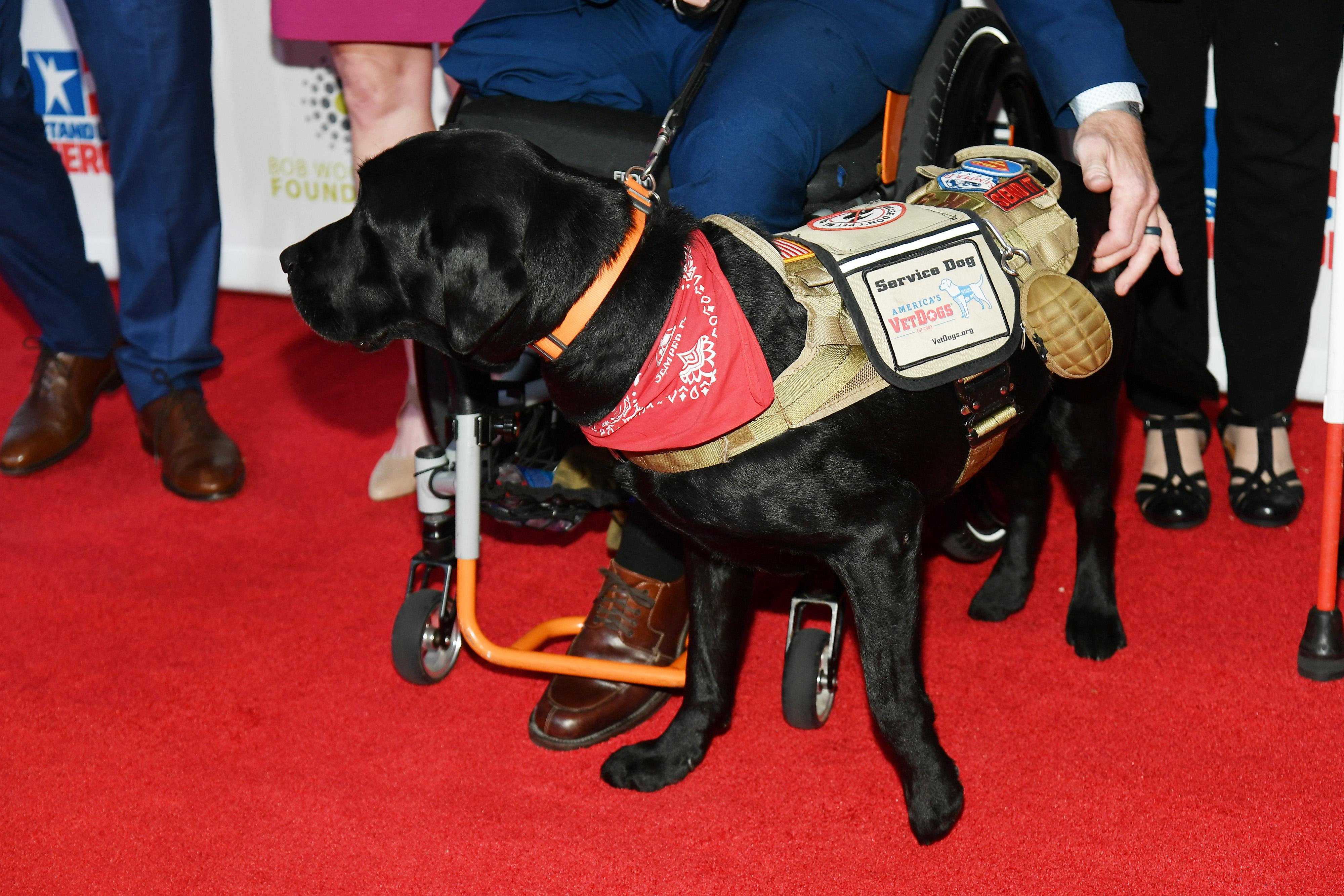
Here’s how a service animal is defined:
In the 1920s, the first service dogs were Seeing Eye Dogs, and typically German Shepherds. The definition evolved a great deal since then, now including many types of breeds and tasks for their pet parents.
The ADA notes, “Service animals are working animals, not pets. The work or task a dog has been trained to provide must be directly related to the person’s disability. Dogs whose sole function is to provide comfort or emotional support do not qualify as service animals under the ADA.”
Emotional support and therapy animals aren’t considered service animals. They offer comfort, but are not trained to perform certain tasks, and because of that, they don’t qualify as service dogs.
The ADA outlines some examples of the work or tasks that a service animal is responsible for, including:
- Guiding people who are blind
- Alerting people who are deaf
- Pulling a wheelchair
- Alerting and protecting a person who is having a seizure
- Reminding a person with mental illness to take prescribed medications
- Calming a person with Post Traumatic Stress Disorder (PTSD) during an anxiety attack
- Performing other duties
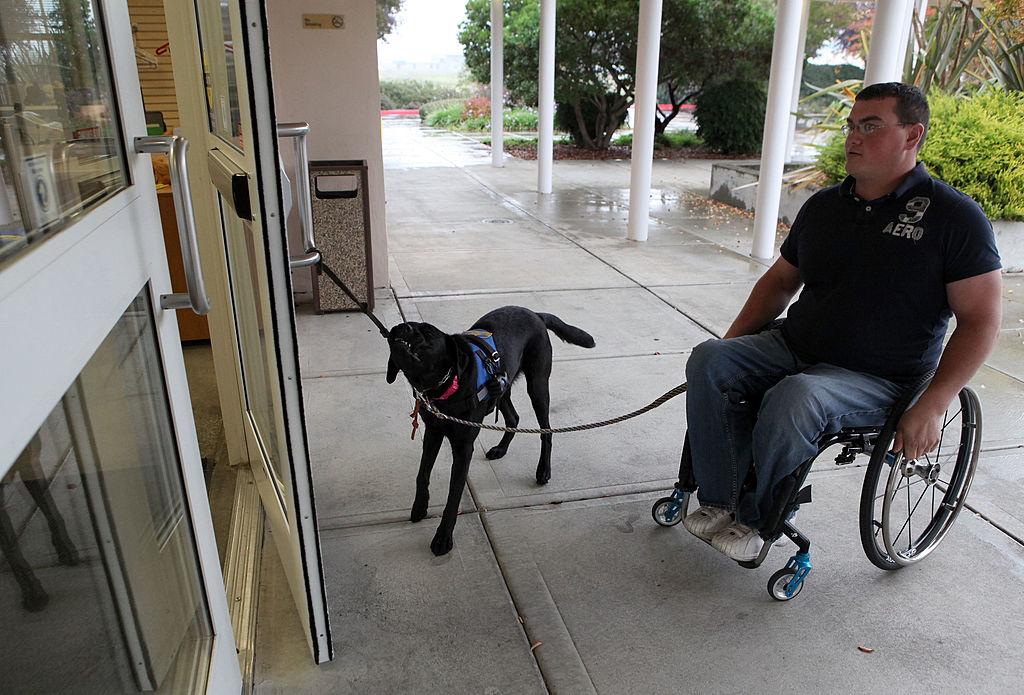
So, how are service dogs trained?
According to Service Dog Certifications, service dogs are not actually required by law to be professionally trained or formally certified. This means that owners may train their own animals to perform specific tasks themselves.
Still, it can be a rigorous process, and there are professional service dog trainers — both non-profit and for-profit — throughout the country who specialize in these services.
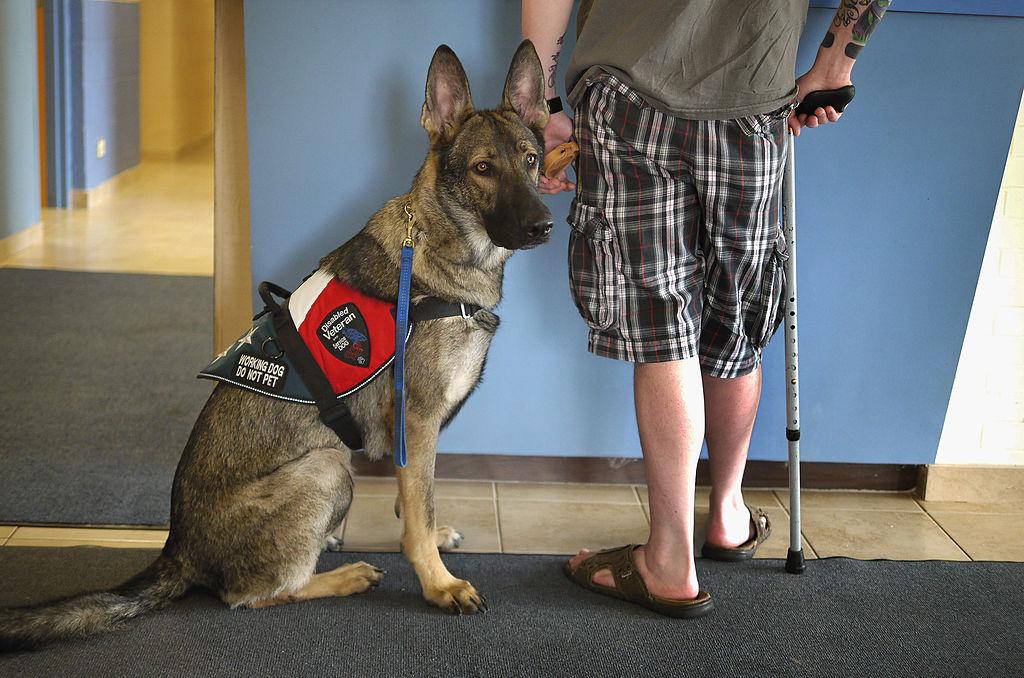
Training a service dog is a big commitment.
As mentioned, the ADA is highly specific about what can be considered a service animal — but there are also specifics around where they can be, and how they are expected to behave.
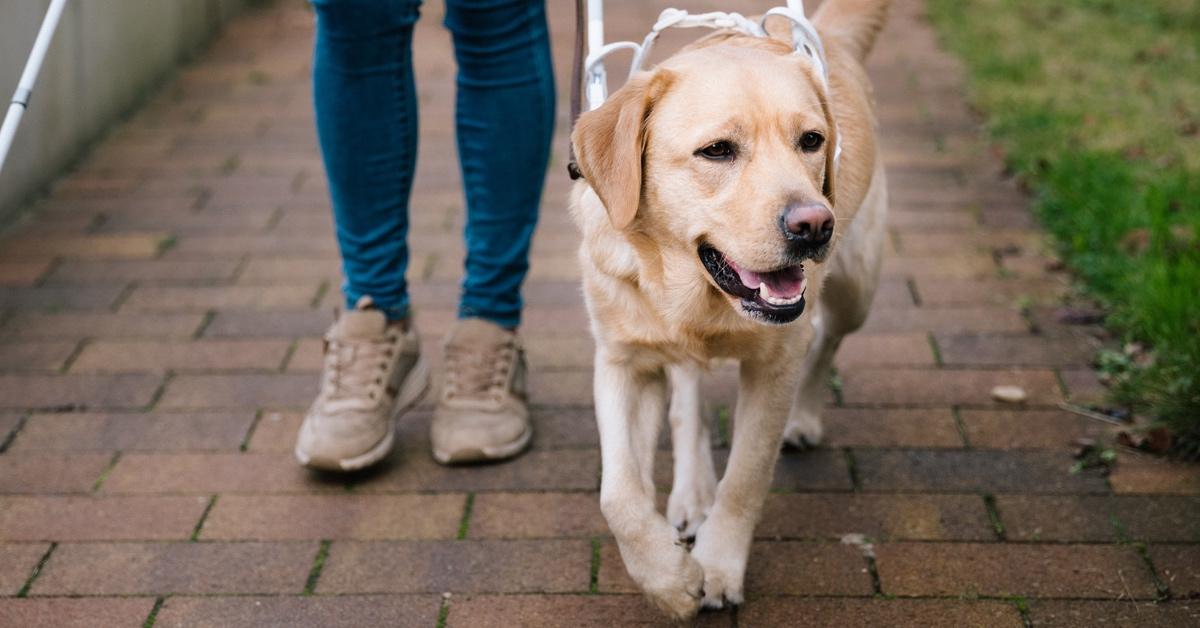
For example, even if a dog qualifies as a service dog under the ADA, the dog is only allowed to accompany their pet parent in certain public areas within businesses, government buildings, and beyond. But in other settings, they may be allowed in other areas as appropriate.
“In a hospital it usually would be inappropriate to exclude a service animal from areas such as patient rooms, clinics, cafeterias, or examination rooms.”
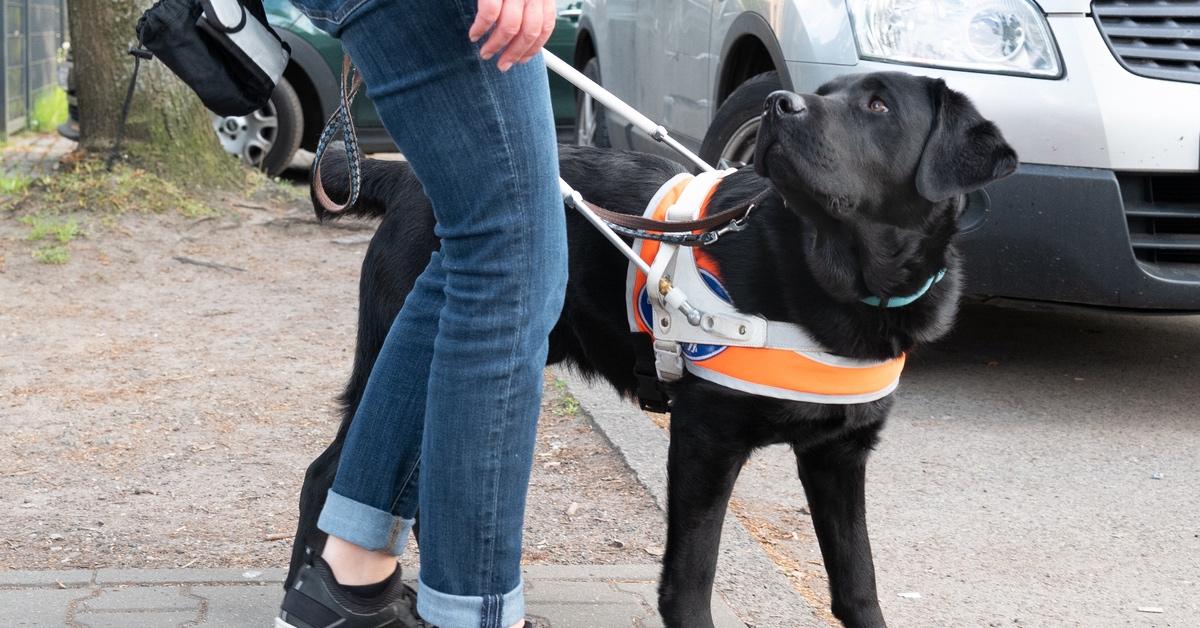
Another requirement is that the animal be harnessed, leashed, or tethered by their guardian unless their disability prevents it. The pup must remain under the control of their guardian at all times.
Service dog training is also a costly and time-consuming undertaking with an exceedingly high failure rate. The drop-out rate of service dog candidates ranges from 50 to 70 percent, AKC shares, and the cost of training a single animal can cost $25,000 and up.
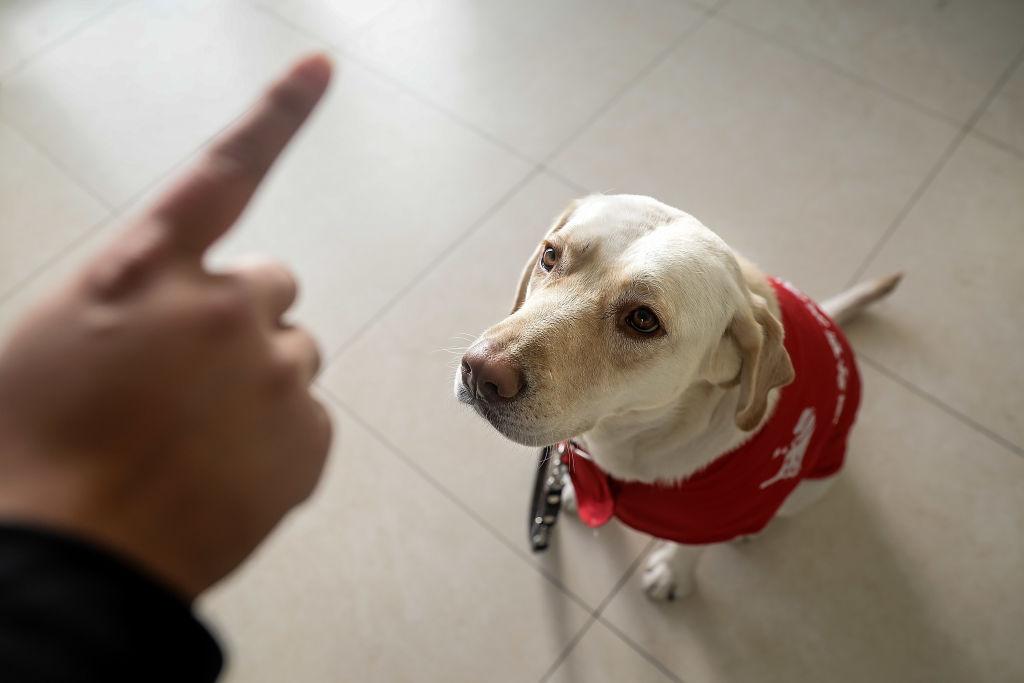
Here are top tips from expert service dog trainers.
We’ve rounded up some of the most commonly shared tips from respected organizations and experts.
- Make sure you’re serious about the commitment, as The National Association of Dog Obedience Instructors shares, saying, “this is one area of dog training where the life, health, and safety of a client is truly in the hands of the trainer. There is no place in the service dog industry for ill prepared trainers.”
- Be mindful of the education and mentoring involved, and find seminars, courses, or a service dog program to learn from. Organizations like the Association of Professional Dog Trainers and Certification Council for Professional Dog Trainers can help.
- Consider the costs and time investment involved throughout the process. “While the United States has no minimum requirement, international standards suggest approximately 120 hours over six months,” Service Dog Certifications shares.
- Remember you’ll be responsible for ensuring the service dog can reliably accompany their partner in public. It must not show aggressive behavior or over-excitement, along with a host of other requirements.
- Remember that it’s not just the service animal that needs training, but their partner as well.
In summary, anyone can legally get started in training their own service animal. But there’s more to the job than meets the eye, so make sure you go into it with the full picture in mind.
This article, originally published on March 2, 2021, has been updated.